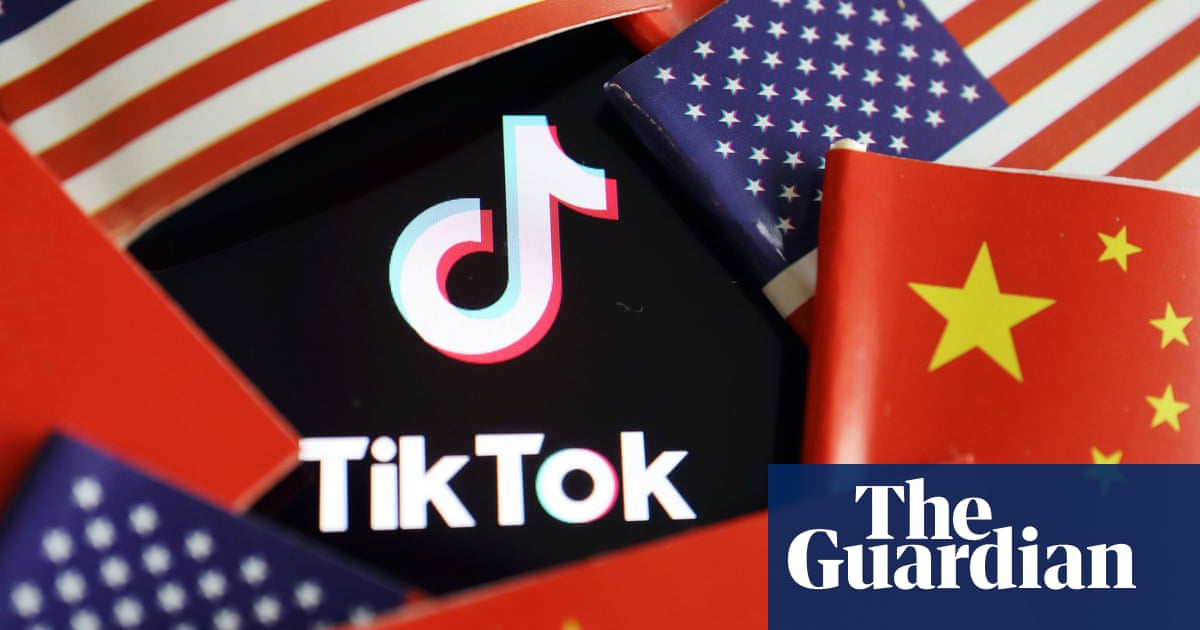
The popular video-sharing app TikTok faces a possible ban in the US and among employees of several major companies over security concerns.
What does that mean for you? Should you remove TikTok from your device? This is what you need to know.
What is the TikTok?
TikTok is a video sharing application similar to Snapchat and Instagram that allows users to post clips 15 to 60 seconds long, usually with music or a movie dialogue. Videos can be “liked”, searched through hashtags and shared with others.
Where does it come from?
TikTok started out as Musical.ly, which rose in popularity as a lip sync app. Chinese company ByteDance bought the app in 2018 and relaunched it with additional features.
Since then, it has grown in popularity, becoming the most downloaded app worldwide in the first quarter of 2020. Overall, it has been downloaded approximately 2 billion times and its user base is young, with 41% among 16 and 24.
So what is the problem?
The concerns are triple. Because TikTok’s parent company ByteDance is based in China, there is a fear that the company may share user data with the Chinese government, either intentionally through data requests or unintentionally through software from surveillance.
There are general privacy concerns about the amount of data TikTok collects from users’ devices. “The fear is that the information on TikTok could provide more details than expected about the whereabouts of people or what they are doing,” said Chris Morales, head of security analysis at cybersecurity firm Vectra. “In theory, you could track someone to a place, like a military base or a government facility.”
And there are concerns about the TikTok code, and experts fear it may allow for security and privacy breaches. TikTok fixed a number of major flaws, including one found in January 2020 that would allow an attacker to control someone else’s account, upload unauthorized videos, make private videos public, and delete existing videos.
Are these legitimate concerns?
Research shows that TikTok collects a significant amount of user data. To register, users must provide their email, phone number and a link to another social media account. The app itself requires user location permissions, audio and camera recordings, and contacts, according to a study by San Francisco-based mobile cybersecurity firm Lookout.
That’s more information than companies like Twitter and Facebook collect. Together, the information could easily be used to identify and track the actions of specific people using the app, said Hank Schless, manager of security solutions at Lookout. “The fact that TikTok is owned by a Chinese company makes it a legitimate security issue,” added Schless.
China is much more aggressive than other governments in forcing companies to share information, and ByteDance, the parent company of TikTok, has worked with local police forces in Xinjiang, where Beijing is accused of detaining one million minority people. religious in reeducation. Camps and prisons, according to a 2019 report from the Australian Institute for Strategic Policy (ASPI). The company has an active role in “spreading the party-state propaganda in Xinjiang,” the report read.
TikTok has denied it shares information with the Chinese government and has distanced itself from ByteDance, hiring former Disney chief executive Kevin Mayer as chief executive in May.
But studies have found cause for concern. A report by security firm Penetrum found that most of the app’s data could be traced to servers in China hosted by Alibaba, which has had security breaches in the past and shares its users’ personal information with third parties, according with its privacy policy. . Servers based in China would also be under Chinese jurisdiction and therefore more easily subject to requests for data.
“Based on our understanding and analysis, it appears that TikTok is over-tracking its users, and that the collected data is partially stored if not fully stored on Chinese servers with ISP Alibaba,” the Penetrum report said.
What if I don’t care about my privacy?
Other problems include moderation and how it is influenced by social and political norms in China. TikTok moderators were guided to censor videos mentioning Tiananmen Square, Tibetan independence, and the banned religious group Falun Gong, the Guardian found in September 2019.
Moderators were also told to delete videos of users who seemed too ugly, poor, or disabled, according to a March Intercept report, and to delete the videos showing protests in Hong Kong.
Who has banned TikTok?
Wells Fargo announced Monday that it will require its employees to uninstall TikTok. Amazon told employees to do the same last week, but withdrew that decision, claiming the instructions were sent in error.
The Indian government banned TikTok and 50 other China-based apps in June, calling them a “threat to sovereignty and integrity.” Last week, United States Secretary of State Mike Pompeo said the Trump administration was “looking” to ban the app in the United States, citing similar reasons.
The U.S. Army and Navy ordered service members to remove the app from military devices in December. And in March, two Republican senators introduced legislation that would ban federal employees from using TikTok on government-issued work phones..
The United States and India have complicated relations with China, with Washington and Beijing locked in a long-standing trade war that shows little sign of giving in. In 2019, the Trump administration banned the products of Chinese firm Huawei from the US, and only this week threatened threats of sanctions against company employees.
Meanwhile, India’s ban on TikTok came after a violent confrontation between Indian and Chinese troops.
“This is the perfect storm of technology that meets geopolitical rivalry,” said Douglas Schmidt, a professor of computer science at Vanderbilt University. “These kinds of things are being used as negotiating tactics in geopolitical trade negotiation.”
TikTok did not respond to a request for comment.